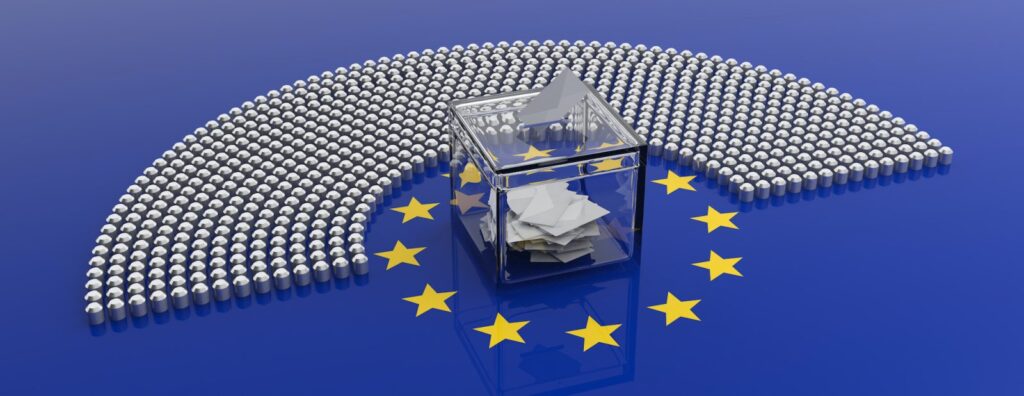Ever since the founding of the European Economic Community in 1958, its member states have aligned themselves with democratic values and freedom of expression. With the Act concerning the election of the representatives of the European Parliament by direct universal suffrage, the European Community acquired its first, and only, directly elected body. With 9 member states in total, the first elections were held the same year, at an average turnout of 61.99%. Even at this bright moment in European democracy, a vast difference in turnouts was starkly visible, with Belgium and Luxembourg enjoying a turnout of over 90%, other countries such as Germany, Ireland and France had 60% turnout, while Denmark and the United Kingdom had turnouts of 47.82% and 32.35%, respectively. This, unfortunately, would not only continue to be the trend but would even get worse as time went by and more member states joined the community, which would later grow into the European Union (EU) of today.
In terms of contemporary history, the EU and its elections have been plagued with low citizen turnouts for decades. With 27 member states and 449 million citizens, the EU is one of the world’s largest democracies, dwarfed only by India, and its elections have the potential to include over 350 million people. However, although the scale and importance of these elections are undisputable due to the incredible influence EU legislation has on its member states, the elections in 2024 barely breached 50% turnout, sitting at 50.74%. The declining trend followed turnouts in member states as well. Croatia and Bulgaria in 2024 had 33.78% and 21.35%, respectively, but even countries with a longstanding history of EU voting, such as Italy and Greece, have gone down below 50%. From the statistics, it is evident that newer Member States do not experience the height of turnout upon joining as they used to. Rather, their turnouts stay low throughout their membership. Nowhere is it more evident than in Croatia, where voter turnout upon joining was a meagre 20.84%, and even at its highest in 2019, barely reached 29.85%.
Subsequently, the EU has to ask itself if it considers this turnout to be satisfactory to its democracy and legitimacy. With 350 million voters, 175 million did not even vote for their representatives, and although a perfect 100% voter turnout is highly unrealistic, we have already ascertained certain EU Member States do achieve much higher turnout than others. With this in mind, the EU might need to start considering solutions that seem outside the usual or common practices that have been used until now. One such solution in many democracies is mandatory or compulsory voting. Long has it been a discussion in democratic societies, whether voting is a right or obligation of a citizen. However, a solution is neither evident nor abundantly clear and mostly depends on the ethos of political discourse a certain culture or country has cultivated through the years.
Compulsory voting is currently law in 21 countries around the world, however, only 10 countries legally enforce such voting in terms of penalization of those who do not participate. There is, however, not a single country which positively enforces voting through any sort of reward or encouragement, neither financial nor material. One of the greatest successful examples of compulsory voting has been Australia. Citizens who do not participate are penalized financially, however, it has resulted in a healthy democratic community, and since 1924, voter turnout has never fallen below 90%. Within the European Union, Belgium, Bulgaria, Luxembourg, and Greece have compulsory voting in elections. Belgium and Luxembourg’s voter turnout remains the highest in the EU, while Greece’s voter turnout, on the other hand, has steadily declined through the years.
With the ever low voter turnouts in the EU, it is maybe time to consider a new method of motivating citizens to vote by making voting compulsory with positive reinforcement such as a symbolic amounts of money, store discounts, food coupons or other material encouragement. Through such methods, the amount or sum of encouragement would not be large enough to entice people to vote solely for the rewards, thus denigrating the sanctity of voting, but it would maybe be enough to positively motivate those who were on the verge of voting and decided not to. Not only would the EU be the first to encourage such a system, but it would also maybe heavily profit from the larger turnout and would achieve a much wider acceptance and support from its own citizens in a political landscape where euro-scepticism has long been on the rise.
All in all, the EU has long faced the challenge of low voter turnouts, and although it is keenly aware of this, it has fallen short in rectifying the problem in a significant way. Not only does the EU lose legitimacy and authority among its citizens, but it also faces more resistance from Member States in terms of legislation. In these radical times in our history, the radical solution might just be what the EU needs. Compulsory voting has long existed in democracies and is a practice that has led to many great results, as much as mediocre ones, but it might just be the lifeline that would save the EU from becoming illegitimate in the eyes of its citizens.
Literature:
https://results.elections.europa.eu/en/turnout/
https://www.idea.int/data-tools/data/voter-turnout-database/compulsory-voting
https://www.europarl.europa.eu/infographic/european-parliament-timeline/index_hr.html#event-19750114
https://effectivegov.uchicago.edu/primers/compulsory-voting
https://www.dw.com/en/eu-elections-350-million-voters-to-choose-new-parliament/a-69268173
https://european-union.europa.eu/principles-countries-history/facts-and-figures-european-union_en
https://ec.europa.eu/eurostat/web/products-eurostat-news/w/ddn-20240404-2
https://eur-lex.europa.eu/EN/legal-content/glossary/democratic-deficit.html
https://sites.bu.edu/pardeeatlas/opinions/op-ed-the-european-union-has-a-democratic-deficit-problem/
https://www.europarl.europa.eu/RegData/etudes/ATAG/2023/754620/EPRS_ATA(2023)754620_EN.pdf
https://voxdev.org/topic/institutions-political-economy/how-effective-are-monetary-incentives-vote
https://library.fiveable.me/key-terms/ap-gov/voting-incentives-or-penalties-or-fines








